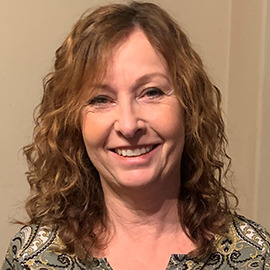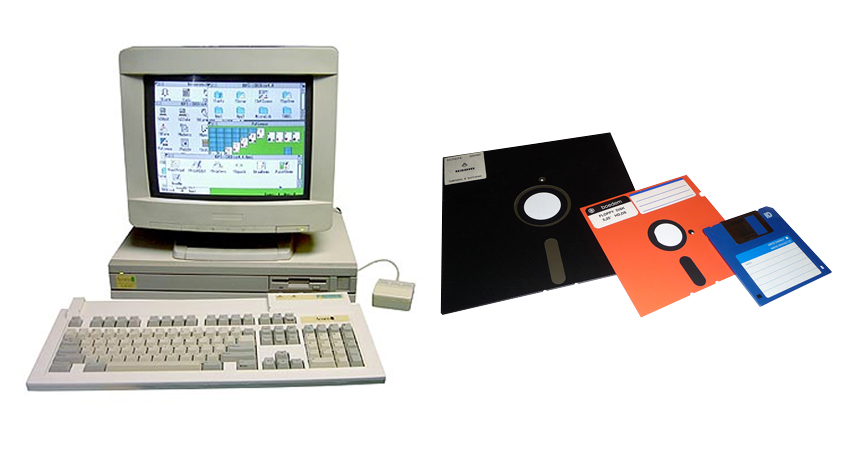
Jennette Greenwood
Jennette Greenwood is AAC Coordinator at Pendle View Primary Special School and works with children on a range of high and low tech communication devices, develops personalised communication systems to allow children to access an education.
“Thank you so much for inviting me to be part of the British AT Scholar Team. I have enjoyed the ATIA 2021 conference a great deal. The recorded sessions have been inspiring and confirmed the route we have taken with the children in our school is the way to go. In these challenging times, it's been great to divert from Covid and concentrate on something else!”
ATIA 2021
The organisers have done an outstanding job of transfer everything online and although I’m sure it would be a wonderful opportunity to experience the conference in real time I’m sure I wouldn’t have participated in as many seminars had I’d been there to watching them online.
Being able to attend the ATIA conference online in this somewhat strange time has been a nice distraction from what is happening in the world around us. The opportunity to watch the recorded webinars has been greatly beneficial in developing my own personal development and seeing how new technology is growing that can only benefit the students that we work with.
Voice research recognition
One of the areas that fascinated me is the research google are doing on speech recognition (Euphonia project). The research is looking at automated speech recognition built upon speech samples from people with speech impairment. Although at the moment the research is around adults with speech difficulties I’m sure one day this will extend to children. Thus taking away many frustrations of children/adults not being understood.
Eye Gaze
The move forward in eye gaze technology by many companies is greatly being developed. Gone have the days when a user would have to move through a communication system using one or two switches to communicate a message. For some children this being a very laborious task especially when they missed the cell they wanted to be on and having to start again. Switch scanning, I feel is skill which many children struggle with. If anyone has ever tried scanning and selecting with two switches they will know how difficult and how much you need to concentrate to gain an end result. The development of eye gaze also allows children/adults who don’t have good head control to also be able to access this technology. The devices are becoming smaller which makes it easier to be mounted on a chair and also allows children/adults to see beyond their device by not obscuring their view.
Children with CVI who require AAC and Mobility for children with CVI
Both of these session I found informative and interesting as I am working with children who have CVI. The research has greatly developed and the understanding how we can help the children we are working with and help create an environment which is right for them.
On reflection
The ATIA conference has reminded me how far assistive technology has grown over the last 26 years since I started working in special education.
During my interview for my first job working in special education I remember being asked did I know how to use a photocopier as I would need to use one to make resources for the student that I would be working with!!!!
26 years ago the only technology in the school I worked in had a couple of the BBC computers with extremely large floppy disc for those of you who remember them and a couple of Acorn computers with a touch screen overlay that kept falling off. The only interactive software was the Inclusive Technology Fairground software. Our only AAC devices were a few BIGmacks dotted around the school and of cause no internet. (Showing my age now. How far technology has come in this time)

Compared with the school I work in today were I can proudly say we have assistive technology that can be accessed by every single student in our school to help them access the world around them and communicate.
Each company offered many benefits for the technology they offered. For me there is no right or wrong answer to say which is the right technology or the right company to buy equipment from. What is right is what works with the person you are working with to allow them to communicate and access the world around them. (One shoe doesn’t fit all).
My area in school is called Robins: The Robin is one of the few birds in the UK that sings all year round. This is due to the importance of its voice to be heard.
(Everyone has the right to communicate in their own special way).
Having the opportunity to access the ATIA conference has allowed me to see how technology is moving forward to allow greater access for the children/adults we work with in enabling them to access the outside world and give them a unique voice.
We need to recognise the importance of allowing more children/adults to have funding towards AAC devices and making the assessment process simpler in changing the categories that children/adults need to meet before being allowed funding for a AAC device. Hopefully this will change in time.
